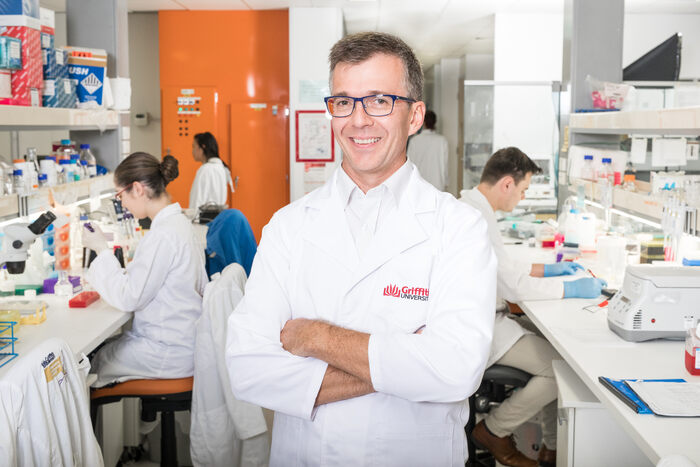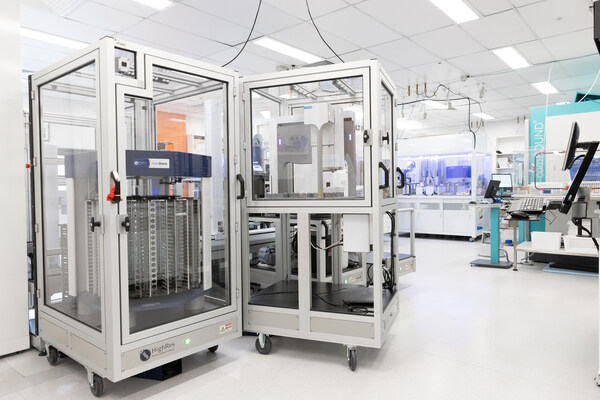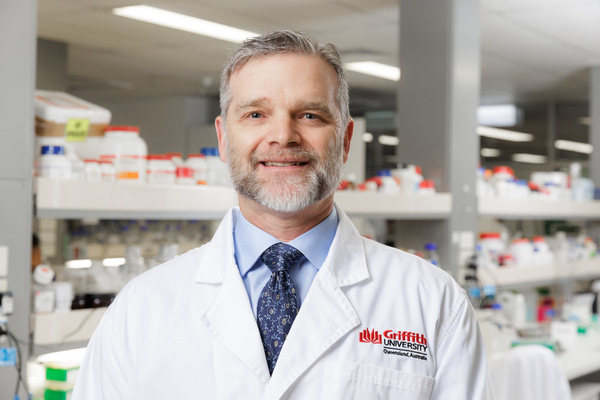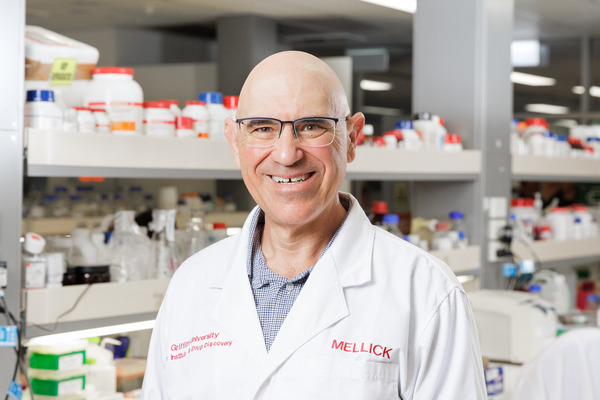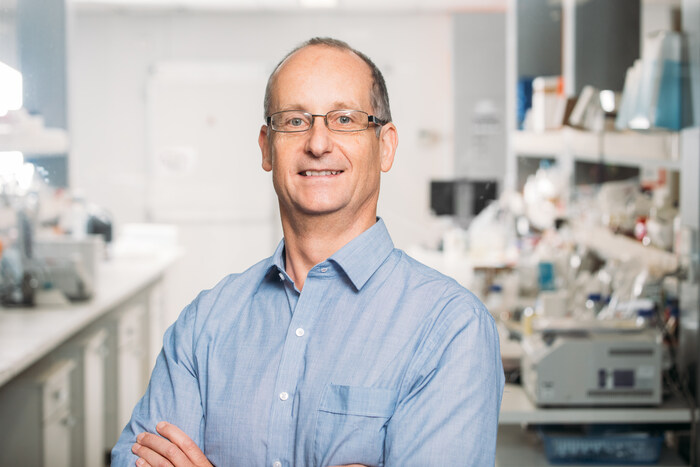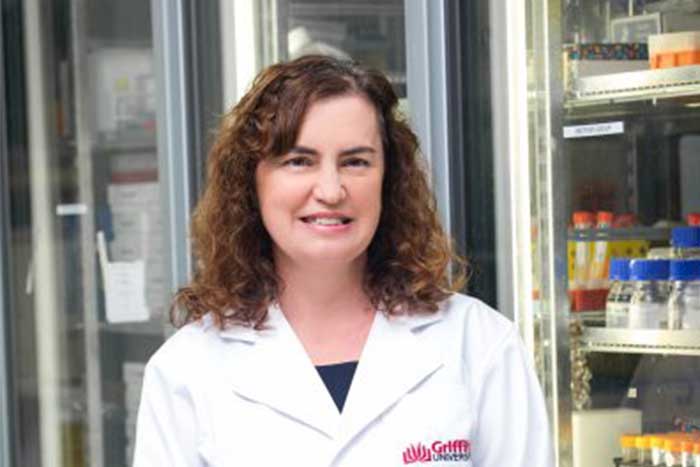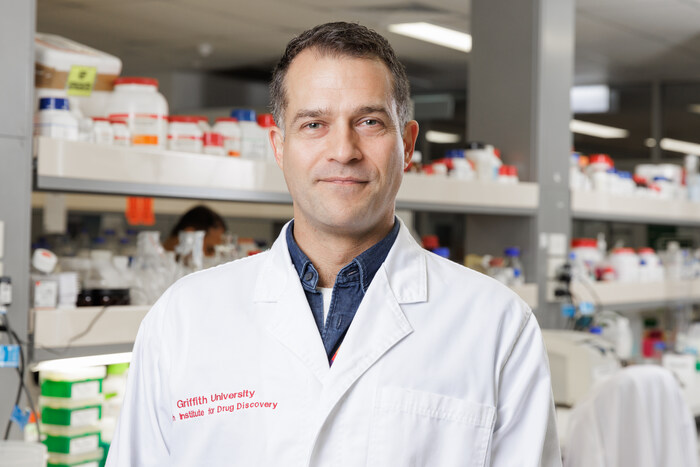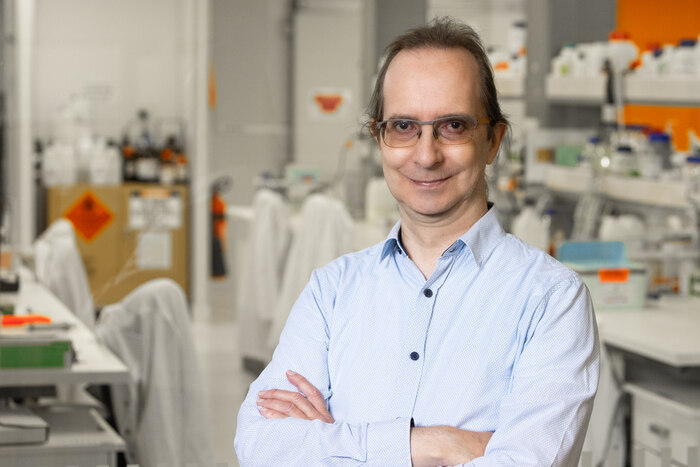Systems-based approaches are not only increasing our understanding of disorders such as schizophrenia, but they’re on track to empower doctors with clinical tools that identify the most effective treatments for individual patients.
The human body is a complex system that relies on countless molecular and cellular interactions to maintain a healthy balance. Illnesses disrupt these interactions, causing cells to malfunction and trigger disease onset. Neurological disorders such as schizophrenia are caused by differing combinations of small effect genetic variations that disrupt normal cellular processes and influence which symptoms will present in individual patients. Genetically speaking, each individual suffering from a disorder such as schizophrenia has a different set of gene variants resulting in varying physical and behavioural symptoms and, importantly, differing responses to medications.
Dr Alex Cristino and his team at the Griffith Institute for Drug Discovery, Griffith University, use a systems-based approach to study the larger picture of how genetic variations and cell dysfunctions come together to present as disorders in patients. The team aims to map the genes and biological pathways associated with neurological disorders and to build an integrated platform for drug discovery and precision medicine. Such a tool will empower doctors by allowing them to match the specific cell dysfunctions possessed by individual patients with the most effective medications to treat them.
For example, they have been making strong strides in developing a tool that will allow doctors to identify the best medications for individual patients with schizophrenia. While schizophrenia medications are available, the complexity of genes behind this disorder means that the process of identifying which drug will work best for each patient can be long and side effects are common, leading to poor drug compliance.
“We’ve constructed a network of interactions between the various genes associated with schizophrenia. Essentially this has provided us with schizophrenia gene signatures, and we’re examining how currently available drugs may reverse these gene signatures to restore normal cell functions,” said Dr Cristino. “In this way we can determine how each drug will affect individual gene signatures underlying schizophrenia and predict how each drug may result in varying responses in each patient.”
The team are also working towards developing computational tools that could be used directly by doctors to map patients’ genes against drug options, narrowing down the search space and helping them make better decisions. This is expected to translate into health, economic and social impacts for patients through better management of their conditions and improved quality of life.
“This research is a great example of how bringing together fundamental research with innovative cross-disciplinary approaches is so important – in this way we can work towards more effective treatment strategies for patients suffering from debilitating diseases,” said Dr Cristino.
Dr Cristino and his team have similar systems-based projects underway with national and international collaborators looking at other neurological disorders including hereditary spastic paraplegia and Alzheimer’s disease as well as immunotherapy for blood cancers. With their research being applicable to a range of complex diseases, we’re sure to see impactful breakthroughs leading to better outcomes for patients from their work in future.
Dr Cristino and his team are seeking philanthropic and general donations to progress their work. To contribute to their ground-breaking research, please find more information here:
We are very grateful for any individual or corporate donations and bequests. Through the GRIDD Director’s Circle you can also help provide career and personal development opportunities for GRIDD’s students and early career researchers.
Dr Cristino and his team are open to collaborations with industry and academic groups. To learn more about Dr Cristino’s research and his contact details:
To keep up to date with developments at GRIDD:
Sustainable Development Goals
Griffith University is aligned with the United Nation’s Sustainable Development Goals (SDGs) and is committed to advancing knowledge, innovation, and practices that promote holistic health and well-being.
